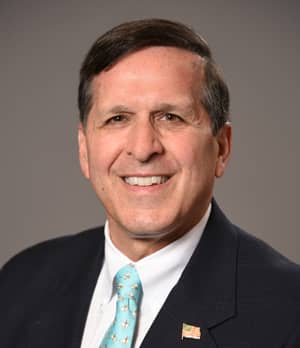How to “extract” yourself from performing the tasks that should be completely handled by your practice staff
By Roger P. Levin, DDS
There are days where you feel like you’ve done everything except for what an orthodontist should do. You’ve answered questions from the front desk, made financial decisions involving patients, answered questions about final contracts from the treatment coordinator and corrected at least five different administrative things throughout the day.
None of these are activities the orthodontist should ideally be doing. They are activities that should be handled completely by the staff. The orthodontist should not even be in the loop.
How do you “extract” yourself from performing these types of tasks? My first suggestion is that you place a sticky note on your desk with the question: Who’s job am I doing now? This simple act will get you thinking about what you should and shouldn’t be doing. Many orthodontists are simply in the habit of responding to questions over and over and over, which has the team remain in the habit of asking questions of the orthodontist over and over and over. If you want to create any level of team autonomy you must stop doing other people’s jobs. You may feel like you’re pitching in, but in reality, you’re merely degrading the ability of the team to do what they should be doing.
The next step is to no longer answer staff questions directly. Answer a question with a question. Make people think. That is what the best leaders do. By doing this, your team will eventually begin to realize that you expect them to consider the answer to a question before they ask it. This is exactly what you want them to do.
Then you want to force decisions. This will get your team members into a mode where they are willing to make decisions without fear. By not directly answering questions, you force staff members to begin making autonomous decisions. Provide them guidance for the decisions you want to reserve as the doctor but trusting the team to make decisions and acknowledging them when they do will create a smoother, more efficient practice with less stress for everyone.
And finally, make sure every team member receives proper training. Remember all practice problems come down to one of three things: systems, training, and people. If the systems aren’t right, you have no chance of the team becoming autonomous and you will keep doing other people’s jobs. If the systems are right BUT you don’t train the team, you’ll have the same scenario. But when the systems are right, and you have trained the team, you will have created the perfect environment for professional satisfaction for you and the team. OP

Roger P. Levin, DDS, is the CEO and founder of Levin Group, a leading practice management consulting firm that has worked with over 30,000 practices to increase production. A recognized expert on orthodontic practice management and marketing, he has written 67 books and over 4,000 articles and regularly presents seminars in the United States and around the world. To contact Levin or to join the 40,000 dental professionals who receive his Ortho Practice Production Tip of the Day, visit levingroup.com or email [email protected].










